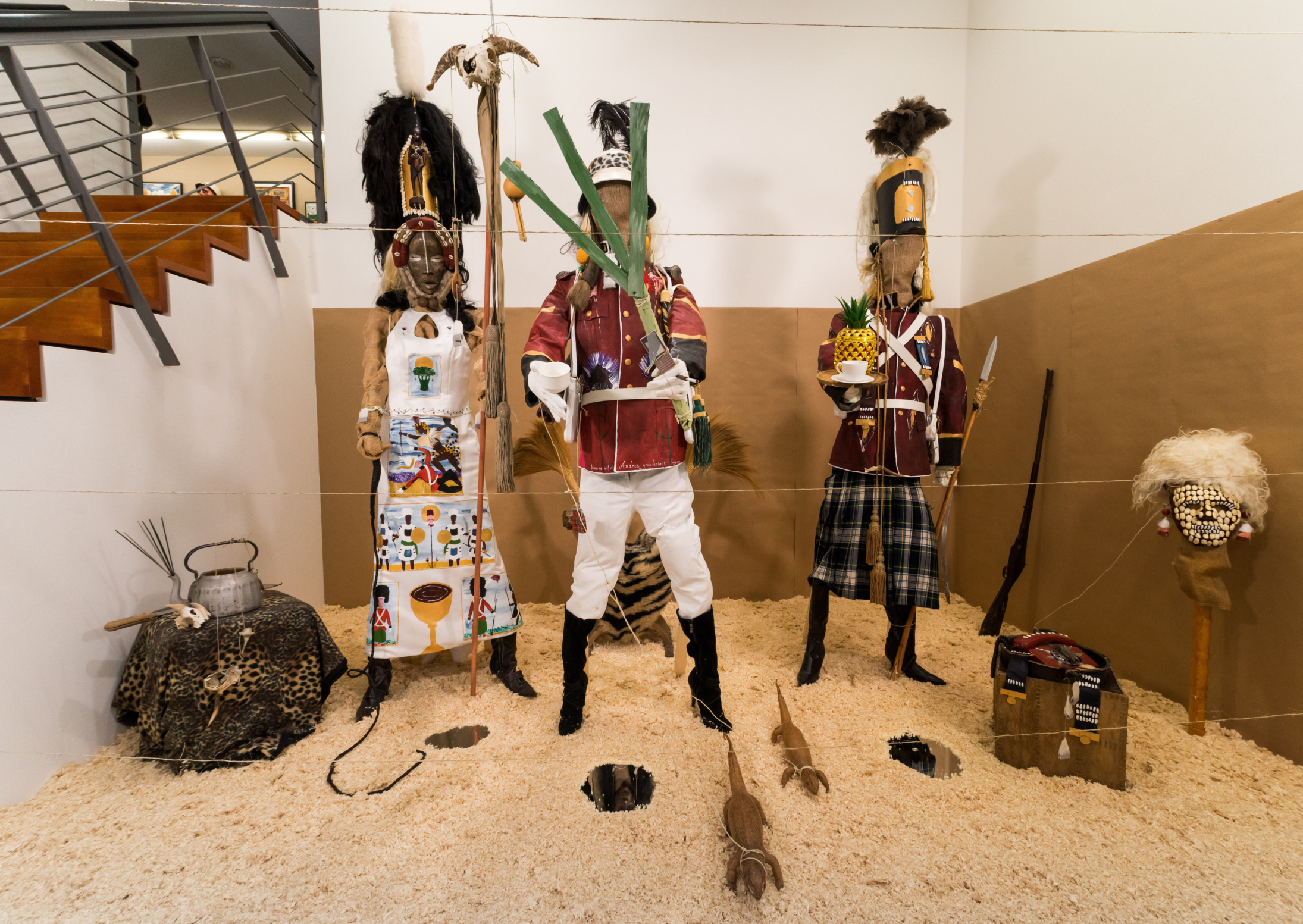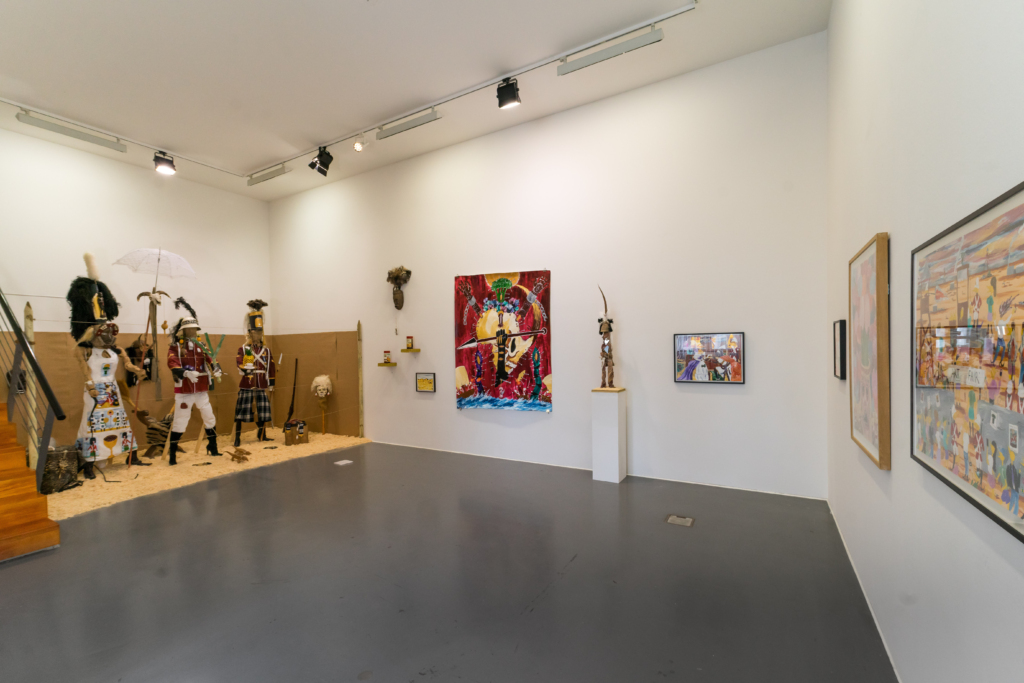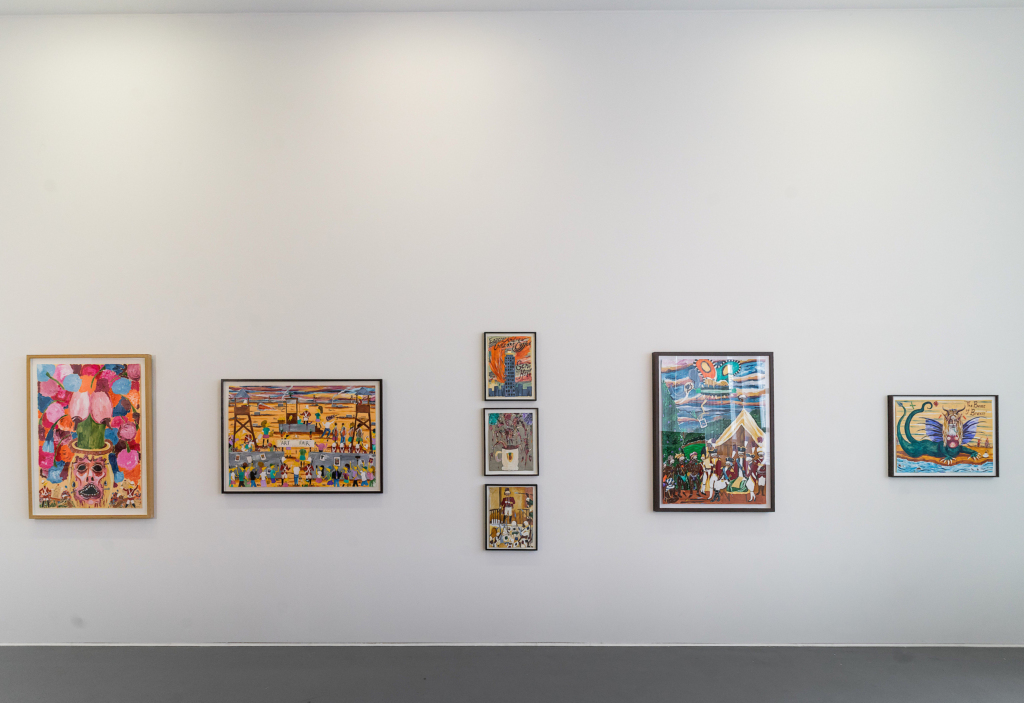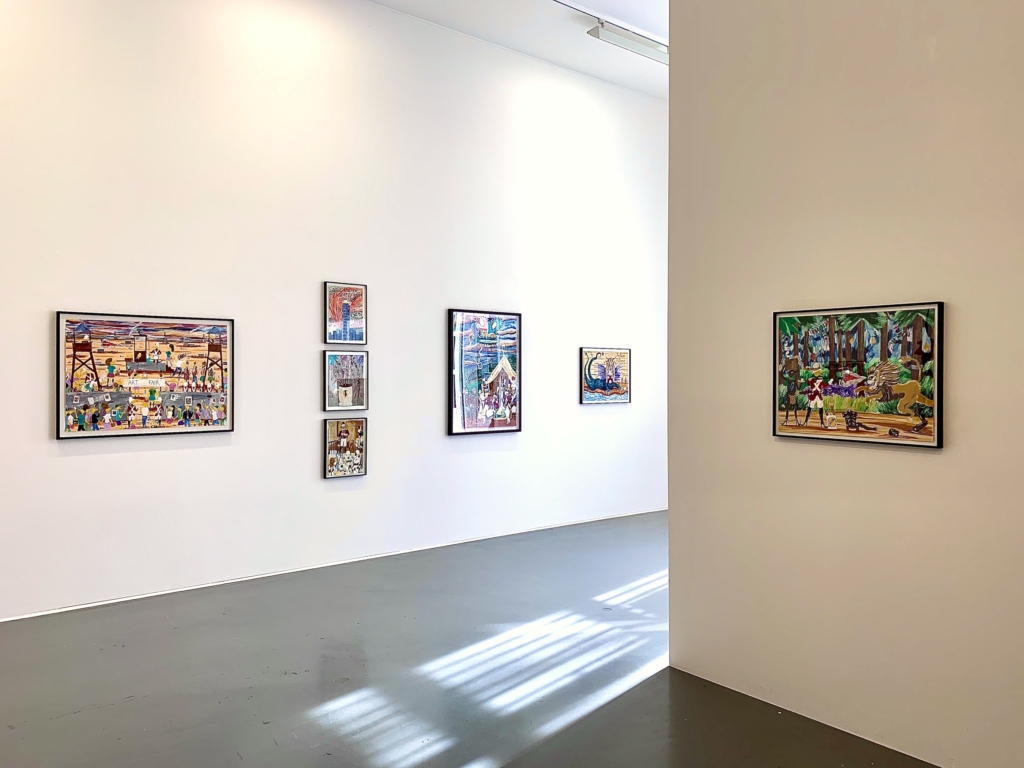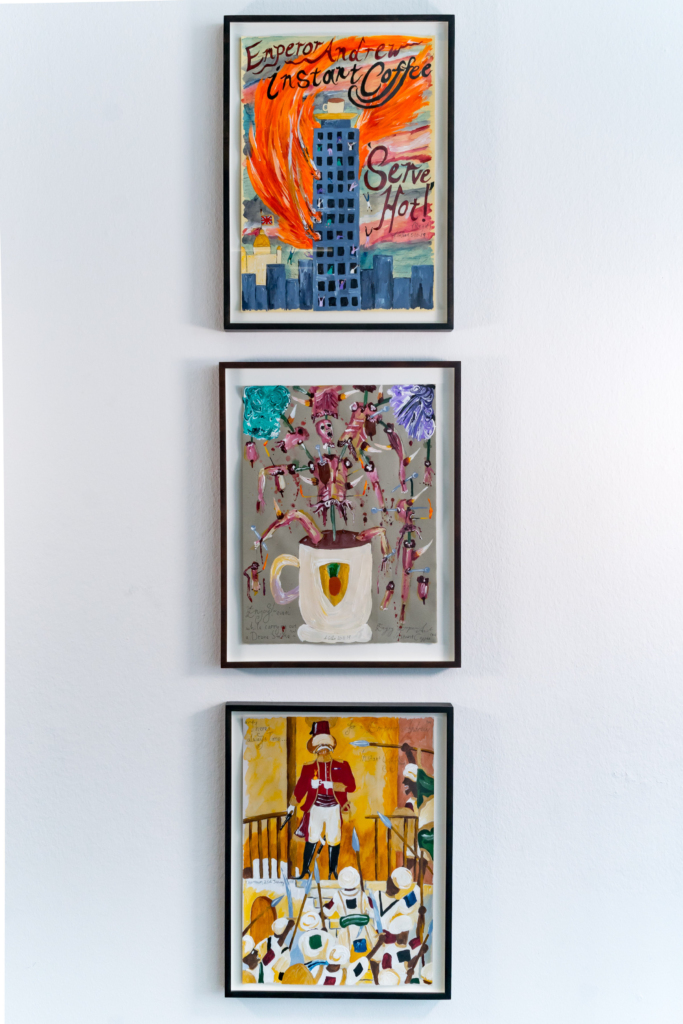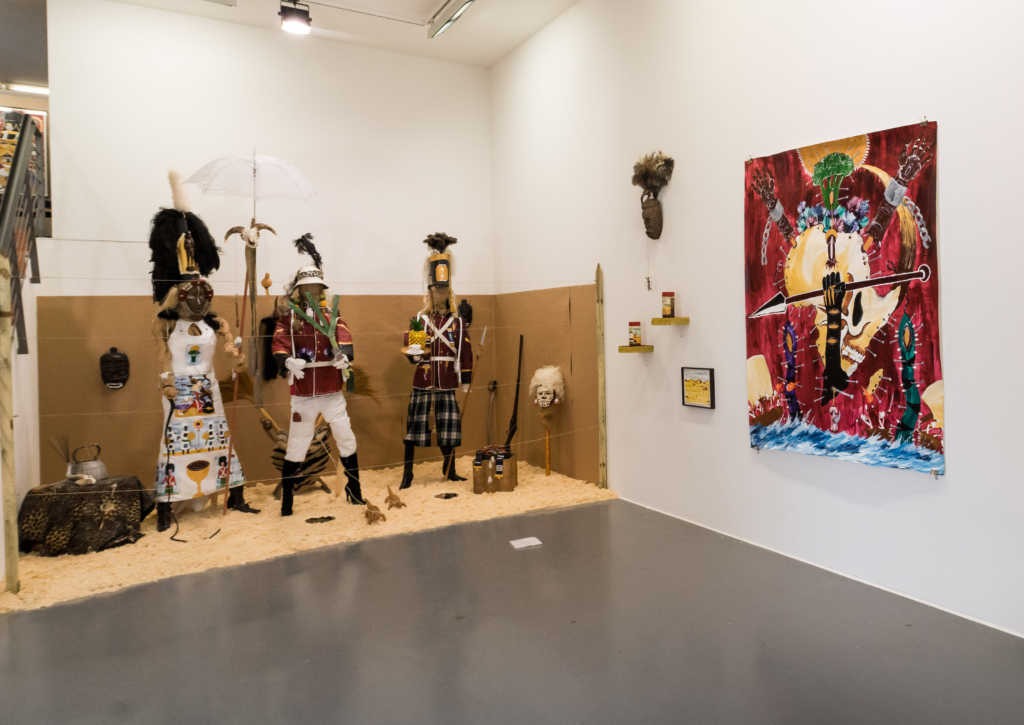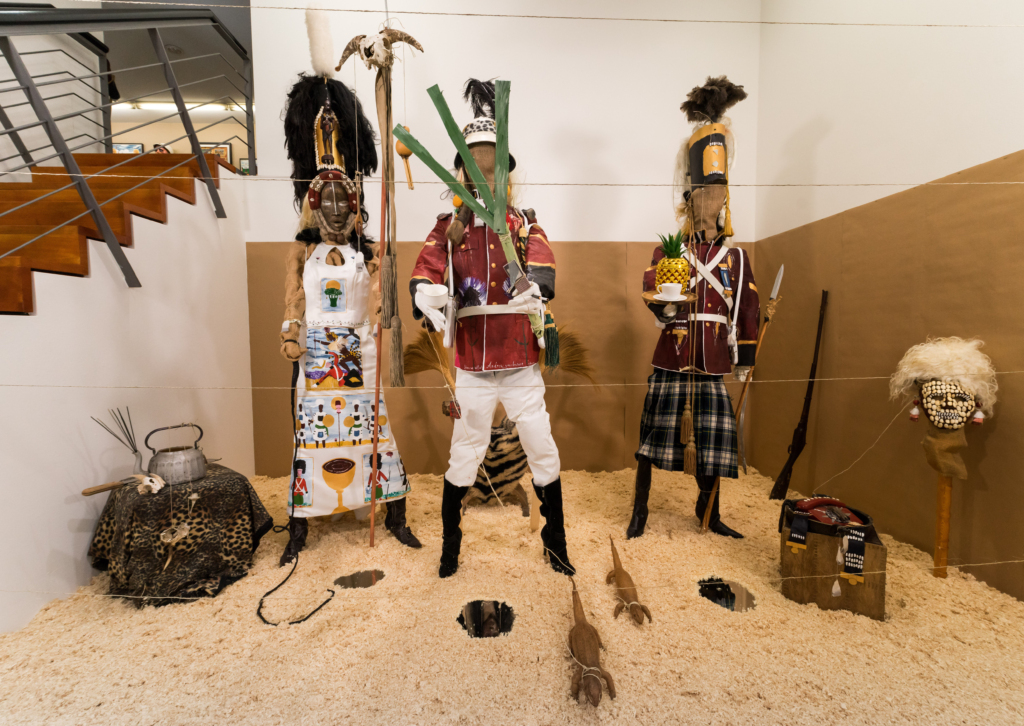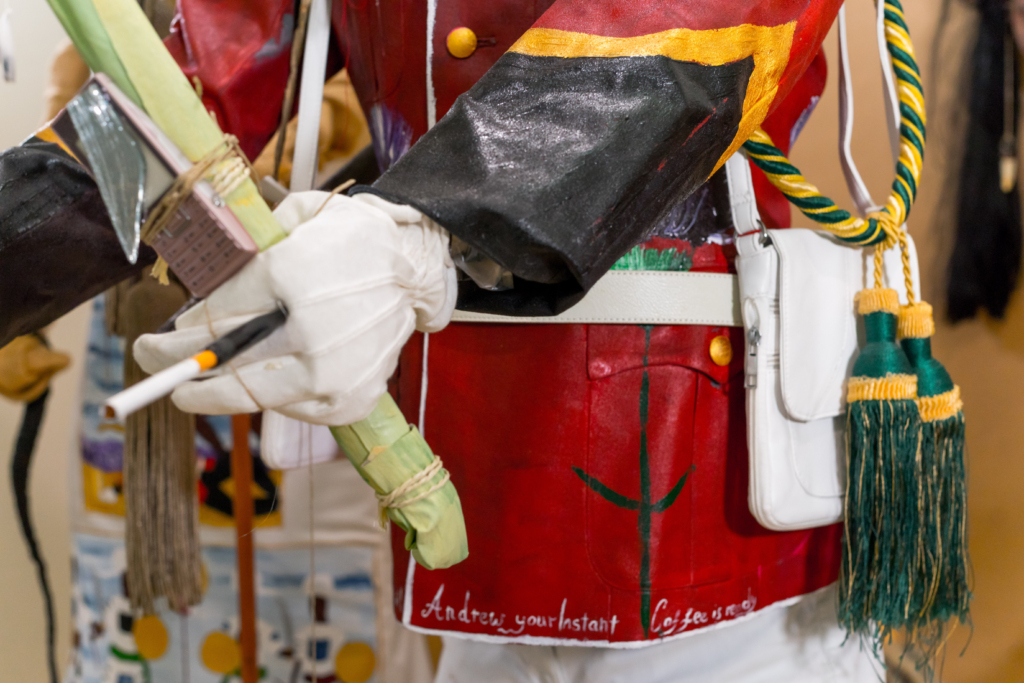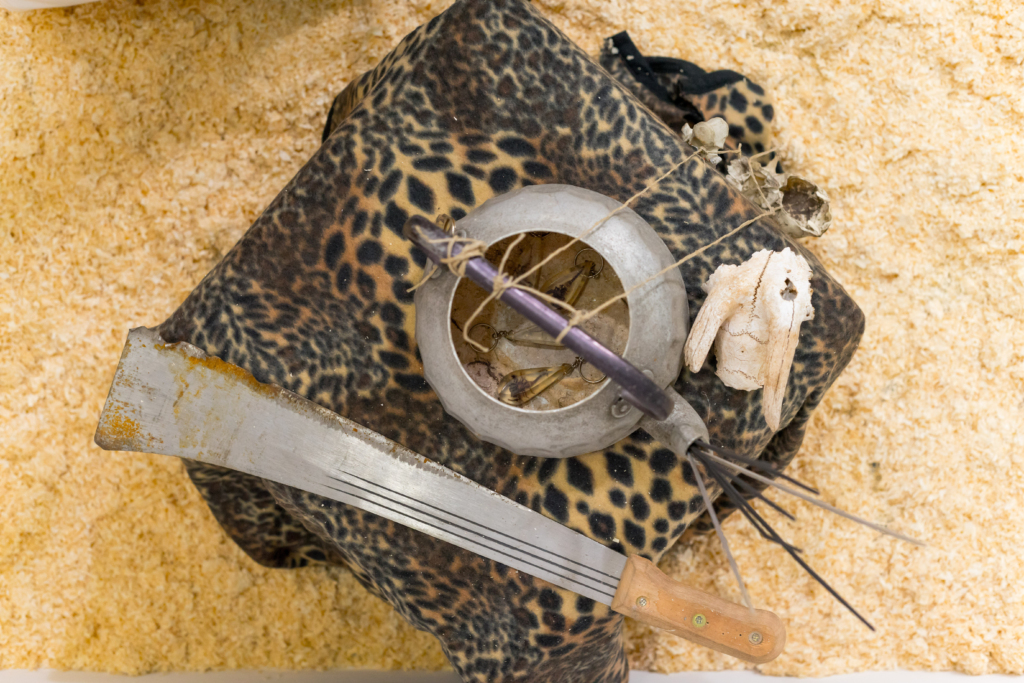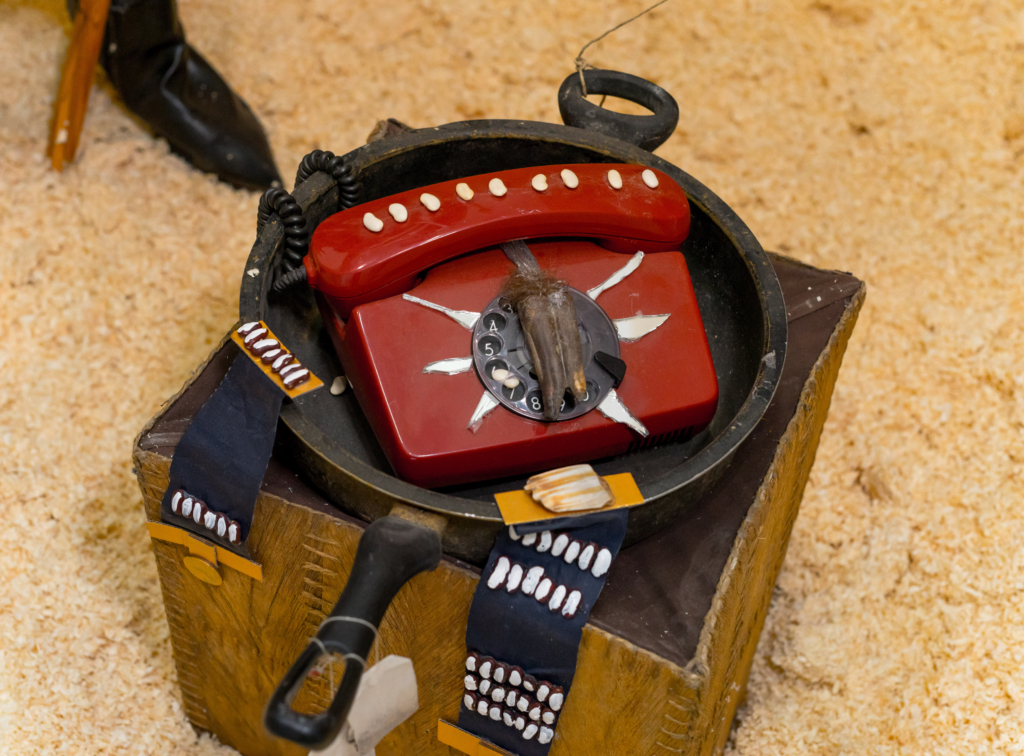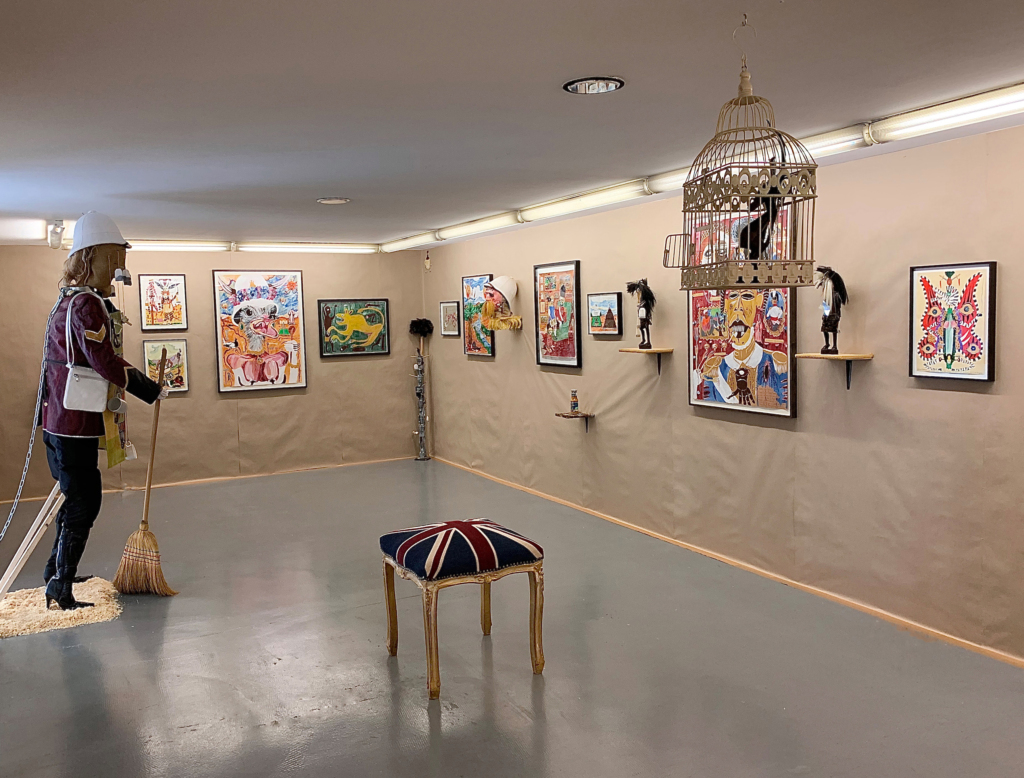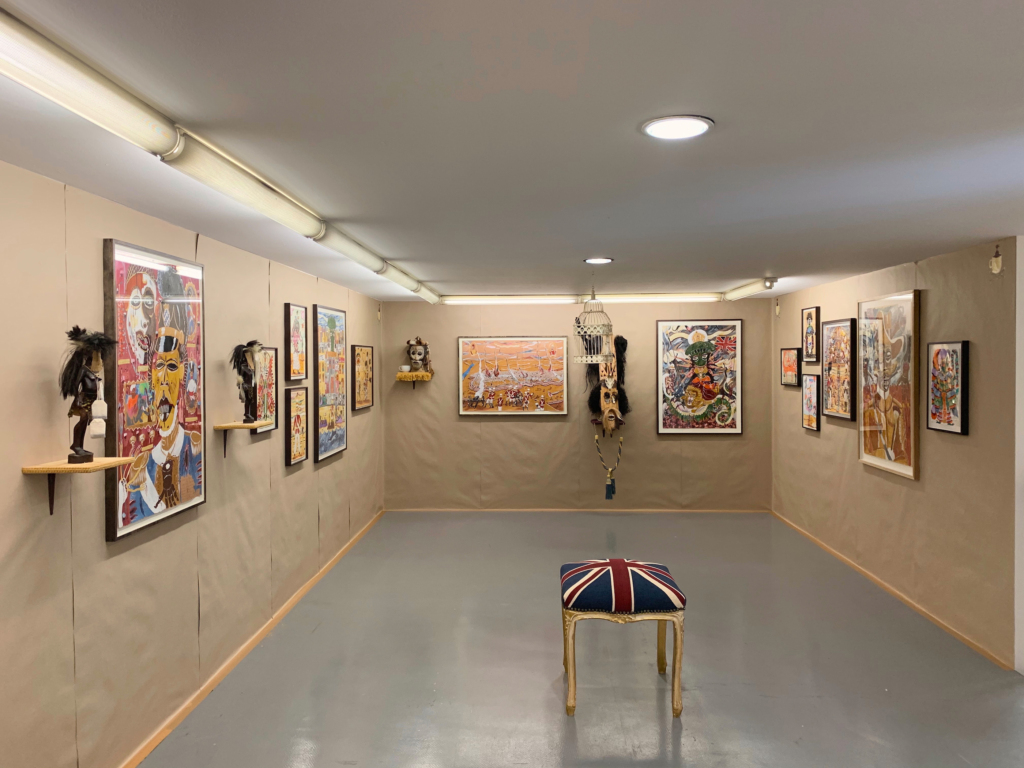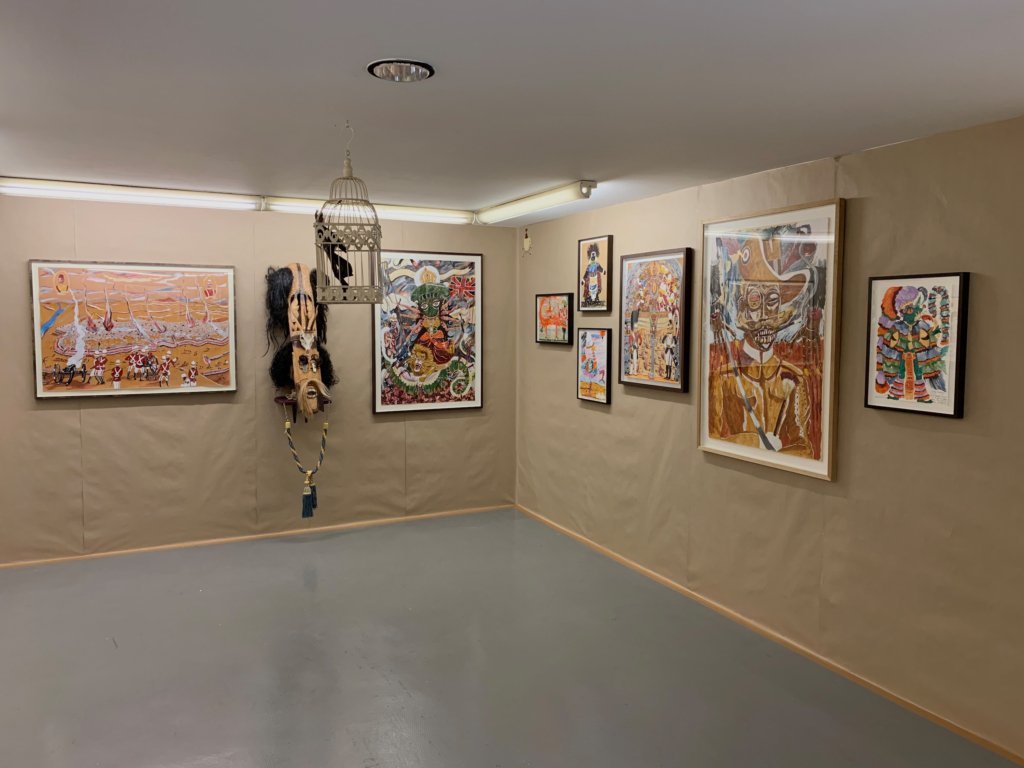In Andrew Gilbert’s (*1980, Scotland) detailed drawings and sculptural installations, past and present collide. Stemming from an insatiable interest in the colonial expansion of European nation-states—particularly the British Empire—in the 18th and 19th centuries, the artist’s works explore the Western world’s pursuit of ever-increasing power and wealth, and the accompanying oppression and exploitation of other countries, entire continents, and their populations.
By combining and confronting historical events and figures with contemporary socio-political themes and present-day individuals, Gilbert reveals the complex, deep-rooted, and multifaceted impact of colonial history on our post-colonial present. In his works, historical battles clash with today’s capitalist consumer culture. African masks and cult objects—once deemed primitive by colonial powers—encounter hipsters from Berlin’s Friedrichshain district. References to the expressionist works of Emil Nolde and Ernst Ludwig Kirchner are merged with a contemporary, exoticized advertising aesthetic, and an art fair transforms into a war scene. Andrew Gilbert addresses both Brexit and the invasion of Iraq by American and British troops. Time and again, he highlights how the geopolitical and societal structures—as well as the economic interests of industrial nations—established through colonialism continue to shape global political events in recent decades. His drawings and installations present history as a chain of events in which the Western world repeatedly makes the same mistakes instead of learning from them—ultimately being overtaken by its own past. Sarcasm, parody, and dark humor turn into a grim seriousness.
Appearing as Andrew the Emperor and through the use of various alter egos, the artist often inserts himself into his visual worlds. Alongside real events and historical figures, imagination and fiction play a central role in his artistic practice. The cast of characters that populate his drawings can be read as a unique iconography, in which each figure and object plays a specific role or symbolically represents something. Gilbert frequently invents his own companies, such as Pineapple Juice™ or the Leek Phone Company™, each standing in for the goods of colonialism or capitalism. After all, pineapples and other such “exotic” products only became coveted consumer goods for Europeans during the colonial era, while the Leek Phone Company™ is a clear parody of the iPhone or smartphones in general—products that have arguably shaped life in the 21st century more than almost anything else.
For his exhibition “The Rise and Fall of Emperor Andrew’s Instant Coffee Plantation” at Kunstverein Friedrichshafen, Andrew Gilbert has taken his fictional Instant Coffee Company™ as a starting point to transform the exhibition space into a colonial villa complete with coffee plantations and a cabinet of curiosities. Working in his characteristic style, he forges numerous connections between the past and the present.
Text / Curator: Hannah Eckstein
